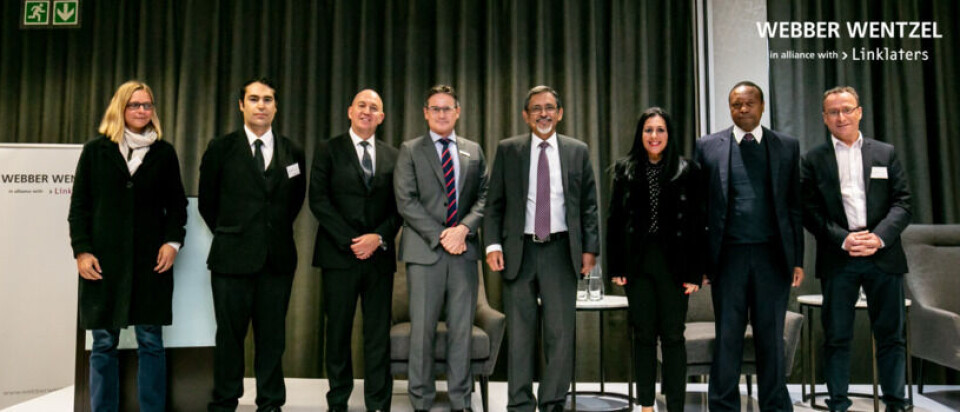Copyright : Re-publication of this article is authorised only in the following circumstances; the writer and Africa Legal are both recognised as the author and the website address www.africa-legal.com and original article link are back linked. Re-publication without both must be preauthorised by contacting editor@africa-legal.com
Time to harness collective muscle

At the launch of Webber Wentzel’s new Competition, Trade and Investment (CTI) Practice Group, Yael Shafrir moderated a panel of the highest calibre to gauge their thoughts on the African Continental Free Trade Area (AfCFTA), localisation, foreign direct investment (FDI), intra Africa investment and digital trade.
The panel featured Professor Franziska Sucker (Associate Professor, School of Law at the University of Witwatersrand), Stephen Meltzer (Executive Consultant at Webber Wentzel), James Hodge (Chief Economist at the Competition Commission and Acting Deputy Competition Commissioner), and Olivier Serrao (Executive: Strategy at Business Leadership South Africa).
It’s common knowledge that AfCFTA still faces many challenges before meaningful trade across the continent kicks in. Sucker highlighted some of these including incomplete tariff negotiations, insufficient physical infrastructure, inadequate digital infrastructure, the challenge of working with 42 currencies, a lack of domestic legislation, and a lack of know-how on the ground among customs officers.
With AfCFTA tariff commitments due to be finalised by June, and competition, IP and digital trade aspects due to be finalised by September, she commented: “These are the official deadlines and I don't think it’s realistic.”
Meltzer discussed some of the trade remedies under AfCFTA, but said, “at the moment these remedies are more illusory than real.” Anti-dumping measures, global safeguards and preferential safeguards are included, but he explained that up to now these have only been used by the Southern African Customs Union (SACU) and Egypt because the rest of Africa does not have the capacity to conduct the investigations which are required by the WTO and these agreements.
On the feasibility of implementing a continental competition policy and possibly a continental competition regulator, Hodge replied: “What we may need to do is have a three-tier approach of national authorities, regional authorities and continental authorities and find ways in which we can divide the jurisdiction between them.”
Moving closer to home, and with localisation having been identified as a critical deliverable in South Africa’s economic recovery action plan, Serrao pointed out that localisation, controversial as it is, has been around for many years in the form of PPPFA, BBBEE and even voluntary organisations like Proudly South Africa. “I think there is broad consensus on the need for localisation provided that it’s smart localisation,” he said. “I think we need to be careful about using localisation as a blunt tool.”
When it comes to local procurement as part of localisation there’s another hiccup. Meltzer shared that in February 2022, the Constitutional Court upheld the Supreme Court of Appeal’s verdict that the Preferential Procurement Regulations issued by the Minister of Finance in 2017 were invalid and that the minister did not have the power to prescribe pre-qualification criteria for tenders. Meltzer explained there is currently a draft public procurement bill which will repeal the framework agreement, but in the meantime there’s much uncertainty.
Looking at the challenge of attracting foreign direct investment (FDI), Serrao shared some of the pros and cons of South Africa, concluding that “the country is certainly bankable and investable”, and although there is concern from potential investors there is also a lot of interest.
In explaining the role regulators such as the Competition Commission play in promoting FDI, Hodge highlighted that there is also an advocacy role for competition agencies. “Stability of society is conducive to investment,” he emphasised, and “overall investment will grow if we have a more stable economy, more equal economy and one where there are opportunities for the entrants and not just the incumbents.”
Hodge also discussed the importance of AfCFTA as it extends into the digital economy. “What’s important from a continental perspective is bringing that collective muscle that’s going to put us in a better position to negotiate terms, allow enforcement and provide protection of our consumers and businesses.”
To watch the full panel discussion click here.
To join Africa Legal's mailing list please click here
